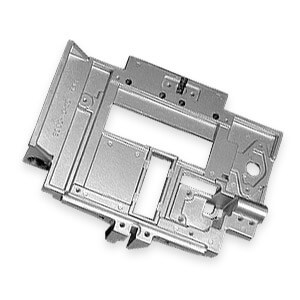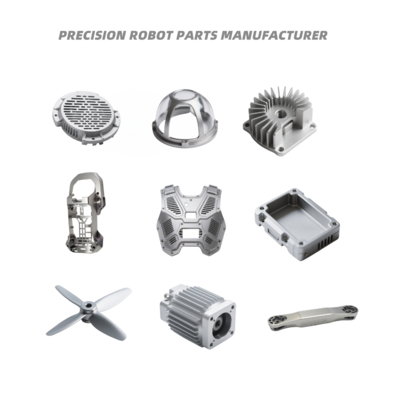The impact of Precision aluminum casting in creating modern machinery
Wiki Article
A Comprehensive Overview to Picking the Right Foundry Providers for Your Task Demands
Choosing the best foundry solutions is essential for the success of any kind of job. Each casting approach-- sand casting, financial investment casting, and pass away casting-- has special advantages. Understanding these alternatives helps in making notified choices. Material option, production abilities, and quality control are vital aspects to take into consideration. In addition, assessing costs can affect lasting stability. Precision aluminum casting. What aspects should guide this decision-making procedure?Recognizing the Different Kinds of Foundry Providers
While the world of factory services might appear complex in the beginning glance, understanding the different kinds can considerably streamline the manufacturing procedure. Foundries usually focus on casting steels, and the major types include sand spreading, financial investment casting, die casting, and centrifugal spreading.Sand spreading entails creating molds from sand and is perfect for huge parts or low-volume production. Investment casting, on the various other hand, uses high precision for complex styles, making it ideal for aerospace or clinical applications. Pass away spreading, characterized by forcing molten metal right into molds under high pressure, is efficient for mass manufacturing of smaller parts.
Centrifugal casting utilizes rotational force to distribute molten metal, yielding solid, round parts. Each solution kind has distinct benefits and is picked based on specific project needs. Recognizing these distinctions allows manufacturers to pick the most proper factory service, ultimately enhancing efficiency and product quality.
Trick Factors to Consider in Product Option
Selecting the proper material for shop services is an essential step that influences the general success of a job. Trick consider material selection consist of mechanical homes, thermal resistance, and deterioration resistance - aluminum casting. Comprehending the designated application and its needs is crucial; materials must hold up against functional stresses while maintaining honesty graduallyAnother vital factor to consider is the product's compatibility with the selected manufacturing process, as some materials are much better fit for specific strategies. Cost-effectiveness likewise plays a substantial function, as budget plan constraints can limit choices.

Finally, availability and lead times of products can impact project timelines, making it essential for task supervisors to analyze these variables completely. By carefully assessing these components, one can guarantee an extra efficient and effective shop service experience.
Examining Manufacturing Capacities and Technologies
Exactly how properly a foundry can fulfill task specs depends upon its production capacities and innovations. A thorough assessment of these elements is essential for job success. Manufacturing capabilities include the foundry's capability to deal with differing project intricacies, timelines, and sizes. Comprehending the shop's tools and equipment is crucial, as modern-day innovations such as computer mathematical control (CNC) machining and advanced mold-making techniques can considerably improve accuracy and effectiveness.In addition, the shop's use cutting-edge products and procedures, such as 3D printing or lost foam spreading, can provide advantages concerning design adaptability and cost-effectiveness. It is additionally crucial to evaluate the shop's capacity to range production, making certain that they can suit future rises in demand without jeopardizing top quality. By carefully evaluating these elements, task managers can make informed decisions click site regarding which factory is ideal fit to fulfill their specific production needs and technical assumptions.
Value of Quality Guarantee in Metal Spreading
Quality guarantee stands as a vital pillar in the metal casting sector, ensuring that every part satisfies stringent requirements and criteria. This procedure entails systematic tracking and analysis of each stage of production, from initial style to last inspection. Applying extensive quality assurance methods improves the dependability and performance of actors elements, decreasing the probability of problems that can endanger architectural honesty.Effective high quality guarantee cultivates count on between foundries and customers, as adherence to high criteria signifies dedication to excellence. It also decreases expensive rework and delays, improving production processes. By determining prospective problems early, top quality guarantee not just safeguards the end product yet additionally contributes to continual renovation within the factory's operations. Eventually, prioritizing quality guarantee in steel casting is important for achieving consumer contentment and maintaining an one-upmanship in the industry.
Reviewing Cost-Effectiveness and Budget Plan Restraints
While traversing the intricacies of foundry solutions, assessing cost-effectiveness and spending plan constraints arises as a vital element for services. Recognizing the overall expense of ownership includes greater than just the preliminary price; it requires an analysis of lasting expenses, consisting of products, labor, and operational performances. Firms ought to request thorough quotes that describe all potential expenses, allowing a more clear contrast in between various foundries.Additionally, companies need to evaluate their particular project needs versus budget plan limitations. This includes assessing the compromises in between lower expenses and possible effect on quality, preparations, and dependability. It is vital to consider whether the picked shop provides scalable solutions that can fit future needs without substantial economic stress. By meticulously stabilizing cost factors with project objectives, firms can make enlightened choices that maximize both budget plan and performance, making certain successful results for their factory projects.
Frequently Asked Inquiries
How Can I Ensure Prompt Shipment of My Shop Task?

What Certifications Should a Shop Company Have?
A reliable factory company should possess qualifications such as ISO 9001 for high quality management, ISO 14001 for environmental monitoring, and industry-specific certifications that demonstrate conformity with safety and security and efficiency criteria appropriate to the casting process.
Can I Check Out the Factory Before Making a Decision?
Yes, going to the shop prior to deciding is commonly advisable. This enables possible clients to assess the facility, satisfy the group, and guarantee that the solutions align with their details task demands and requirements.What Is the Common Preparation for Custom-made Castings?
The regular lead time for custom castings ranges from four to twelve weeks, depending check upon the complexity of the style, product requirements, and the factory's ability. Timely interaction can commonly speed up the procedure.How Do Foundries Handle Style Modifications During Manufacturing?
Foundries normally suit style modifications throughout production by carrying out versatile procedures. They evaluate the effect on costs and timelines, interact with clients, and readjust workflows to ensure quality while decreasing disruptions to the manufacturing routine.
Report this wiki page